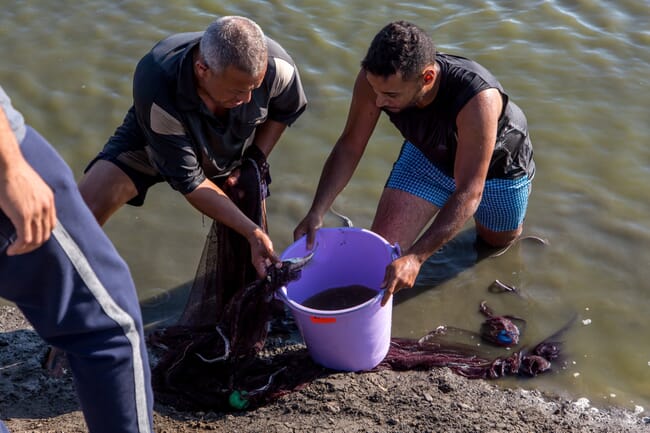
Previous research carried out by ESR suggested that animal welfare was "completely unheard of" in Egypt's farmed fish sector, but the two organisations aim to change this through the new partnership.
Egypt is the top tilapia producer in Africa and the Tilapia Welfare Project aims to show Egyptian producers not only how to measure and assess tilapia welfare on farm, but also the financial and production benefits of doing so.
“Research carried out last year revealed tilapia welfare is completely unheard of in Egypt and it’s important this changes. We need to bring Egypt in line with other leading fish-producing countries and adhere to international standards if we are to secure new markets for Egyptian seafood,” explains Wasseem Emam, founder, director and lead researcher at ESR.
“ESR has always viewed farmed fish welfare as a crucial issue. It’s also a no-brainer as it benefits both the fish and the farmers by reducing disease outbreaks, mortality and the use of veterinary medicines," he adds.
The need for quick, easy and mobile-based welfare assessment platforms was just one of the reasons ESR wanted to partner with FAI on the Tilapia Welfare Project.
“We are rolling out FAI’s Tilapia Welfare App to farmers and providing training on how to make the best use of this tool,” continues Emam. “By using the app, we’re confident we can help farmers improve fish performance, health and welfare.”
ESR and FAI are also delivering a series of workshops and online training to those working with the nation’s fish farmers, to spread the project’s impact far and wide across this important national sector. With the right support, project leaders believe Egypt has the potential to become a hub for training fish farmers across Africa.
Training the trainers
One participant in the Egyptian project is Dr Mahmoud Eltholth, a lecturer in global health at Royal Holloway University, London.
He explains: “I am always looking for opportunities to learn and gain skills that help improve tilapia production and farmers, particularly small-scale producers. Last month I did an online ‘train the trainers’ event run by FAI’s aquaculture welfare team and I’m already planning to share what I learnt about tilapia welfare by running workshops for farmers.”
The Tilapia Welfare Project has already achieved its initial goal of providing a baseline map of production practices and identifying particularly low points of welfare. It will now focus on implementing welfare improvements across the production cycle of the Egyptian tilapia farming sector.
“We're excited about the evolution of the project over the coming years. We expect to benefit from FAI’s expertise in this area and considerable knowledge from carrying out similar work in other countries,” remarked Mr Emam. “We currently have two members of the FAI team in Egypt. They are undertaking farm visits to share findings of fish welfare research and provide practical advice to Egyptian farmers and aquaculture professionals.”
FAI’s CEO, Øistein Thorsen concludes: “To achieve the goals of FAI’s global Tilapia Welfare Project, we need to be working in countries where tilapia is being produced at scale. We’re thrilled to be launching the project in Egypt, together with ESR. Together we will be driving improvements across major areas of the tilapia production cycle that can yield benefits to farmer profits and fish wellbeing in Egypt.”


